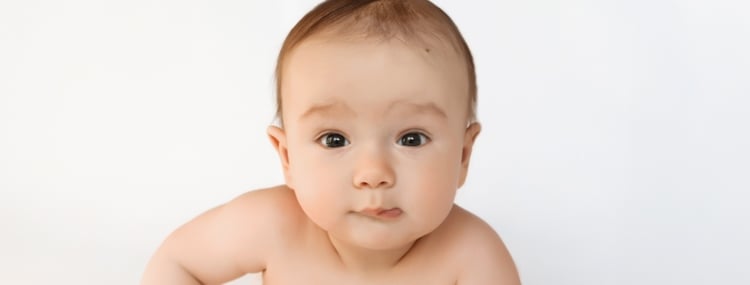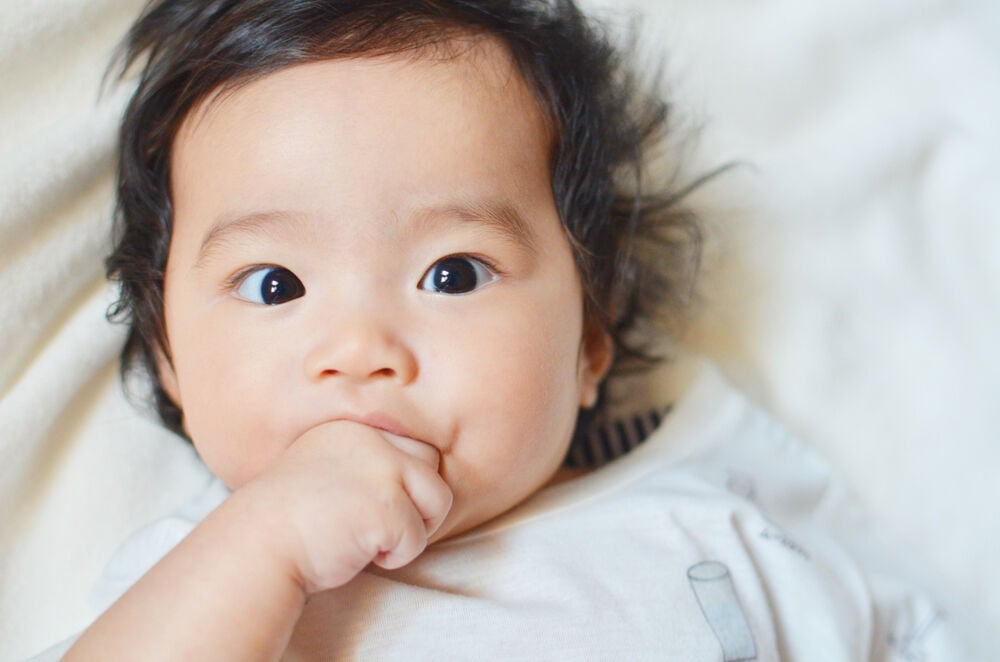From the moment you bring a newborn home, you start to wonder what their behavior means. Many babies bite their lips or knuckles at some point, and you might wonder why. Will it cause future problems? Will it affect how they breastfeed?
-
Tracking cycle
-
Getting pregnant
-
Pregnancy
-
Help Center
-
Flo for Partners
-
Anonymous Mode
-
Flo app reviews
-
Flo Premium New
-
Secret Chats New
-
Symptom Checker New
-
Your cycle
-
Health 360°
-
Getting pregnant
-
Pregnancy
-
Being a mom
-
LGBTQ+
-
Quizzes
-
Ovulation calculator
-
hCG calculator
-
Pregnancy test calculator
-
Menstrual cycle calculator
-
Period calculator
-
Implantation calculator
-
Pregnancy weeks to months calculator
-
Pregnancy due date calculator
-
IVF and FET due date calculator
-
Due date calculator by ultrasound
-
Medical Affairs
-
Science & Research
-
Pass It On Project New
-
Privacy Portal
-
Press Center
-
Flo Accuracy
-
Careers
-
Contact Us
Should You Stop a Baby From Biting Their Lips? Is It Dermatophagia?


Every piece of content at Flo Health adheres to the highest editorial standards for language, style, and medical accuracy. To learn what we do to deliver the best health and lifestyle insights to you, check out our content review principles.
Read this article to learn more about how to stop your baby from biting their lips and whether this behavior is typical.
Why do babies bite their lips?
If you have a baby at home, you've probably seen them biting or chewing on their lips at some point. It's normal to wonder what this behavior means. Is your baby hungry? Are they anxious or worried? Will biting their lips cause future problems?
The good news is that in most cases, your baby biting their lips is completely normal. Here are some of the reasons why your baby might be biting their lips:
They're self-soothing.
As babies develop, they learn different techniques to soothe themselves. This is done instinctively; no one teaches them these things. These behaviors have been passed down for centuries, and most children exhibit some form of self-soothing at some point.
It's very easy for babies to reach their thumb and suck on it when they're in the womb. Yes, babies start sucking their thumbs even before they're born! But once they're born, their hands become harder to reach. Many babies bite or suck on their lower lips as a replacement when they want to self-soothe.
Take a quiz
Find out what you can do with our Health Assistant
Other common self-soothing behaviors include:
- Sucking on their thumbs
- Needing to have certain objects nearby at bedtime
- Rubbing certain parts of their own or their parents' bodies (such as your arm, for example)
- Pulling on hair
- Rocking back and forth
These habits can seem strange and make new parents anxious, but they're simply your baby's way of calming themselves. Most babies and toddlers grow out of these habits with time.
They're about to start teething.
Teething can cause your baby's gums to itch. Babies typically start teething when they're approximately 6 to 10 months old, though some babies can get their first tooth sooner than that. Once your baby's teeth begin to erupt, their gums can get itchy and sore.
Many babies try to scratch their itchy gums by biting on objects. Others might bite their lips if they don't have anything else available. If your baby has recently started biting their lips and is drooling more than usual, their teeth could be preparing to erupt.
They want to try your food.
As babies grow older and become more aware of their surroundings, they start to want to copy people. This includes wanting to taste new foods, especially if they can see other people eating. If your baby is biting on their lips during dinner, they might like the smell of your food and would like to try it.
If your baby is older than 6 months, talk to your pediatrician about getting them started on solid foods. It's very important to ask a doctor for advice on which solid foods your baby can try according to their age.
I've been using Flo for about 4 years now and it's only gotten better! I love how much customization it has. It's been pretty accurate too. Definitely recommend!
Do babies suffer from dermatophagia?
Dermatophagia is a disorder where a person compulsively bites their own skin, particularly their fingers. People with dermatophagia are also prone to biting the skin around their nails, knuckles, and inside their mouth.
This behavior is more common when people feel stressed or anxious, and it's considered to be a form of obsessive compulsive disorder (OCD). Babies are too young to be diagnosed with dermatophagia, so when they're biting their knuckles or lips, it doesn't mean they have OCD.
How to stop your baby from biting lips
Unless your baby absolutely won't stop biting their lips or has other symptoms — such as lesions on their lips, fussiness, or fever — you have nothing to worry about. If you're concerned about your baby's lips becoming chapped, try applying an infant-safe lip balm a few times a day.
Your baby is biting their knuckles: should you do something?

In most cases, your baby's lip-biting habit will go away as they grow older. If you think they're biting their lips because they're hungry, try offering them something to eat. If this behavior occurs only when they're exposed to loud noises or other stressful situations, distract them with a happy activity.
If the lip biting only occurs occasionally, and your baby is otherwise behaving normally, you don't need to worry about this behavior.
When to call a doctor
Although lip biting is perfectly normal in most cases, there are a few issues that you should keep in mind. As children get older, lip biting and sucking is associated with an increased risk of developing an overbite.
An overbite can affect the position of your child's teeth and their ability to chew. If your baby is over a year old and still frequently sucks on their lips, bring it up with your pediatrician. A specialist can provide exercises to help your child stop biting their lips.
Lip biting and sucking are common behaviors in many infants. It's usually a self-soothing technique, although it can also be caused by teething and, occasionally, hunger. Although it can cause complications if it goes on for too long, most babies will grow out of it.


Hey, I'm Anique
I started using Flo app to track my period and ovulation because we wanted to have a baby.


The Flo app helped me learn about my body and spot ovulation signs during our conception journey.


I vividly
remember the day
that we switched
Flo into
Pregnancy Mode — it was
such a special
moment.
Real stories, real results
Learn how the Flo app became an amazing cheerleader for us on our conception journey.




